So, you’ve decided to explore the great outdoors. Let us tell you a secret: preparation is key to a delightful camping adventure. And we not only have camping gear in mind.
With so many ways of heading to the wild, it’s essential to know what each trip can bring you. Today, we’ll uncover the ins and outs of the two most popular ones – camping vs backpacking – so you can decide what’s right for you.
What is camping?
At its simplest, camping is spending a night or a few in some wild spot, bringing a tent or an RV along. The main rule – no buildings like cabins or houses.
There are different types of camping, each with its own set of guidelines and peculiarities:
Car camping
Also called front-country camping, car camping means you can drive up to your campsite and unload all the gear. You can take everything you wish without limiting yourself to a backpack space – camping coolers, fishing supplies, sleeping bags – you name it.
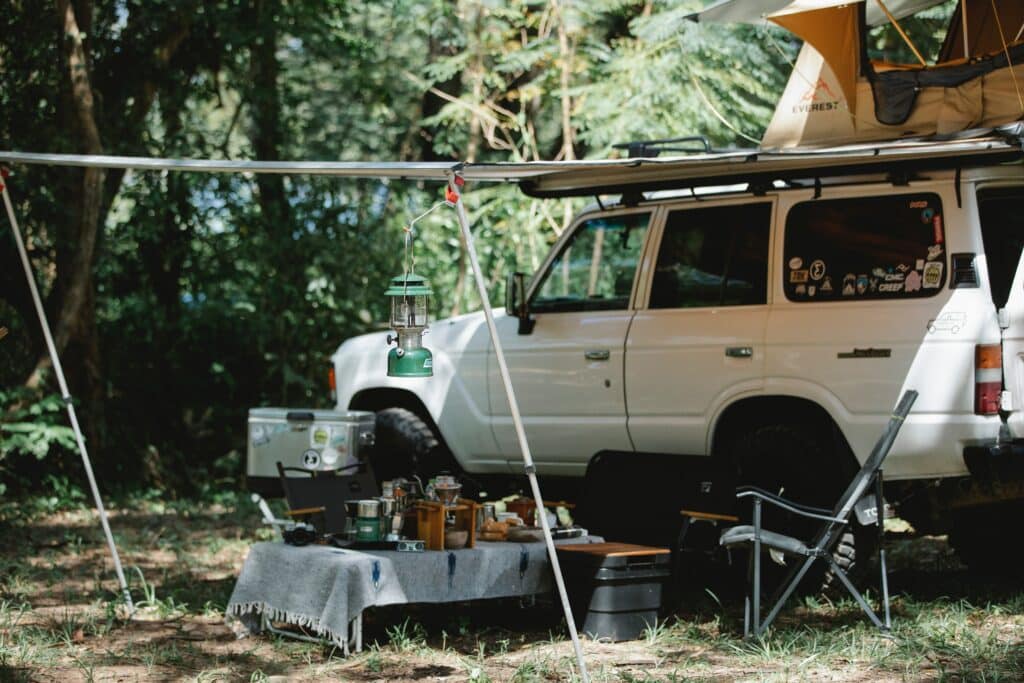
Tent camping
Tent camping is what comes to mind when most people think about camping. You take a tent and some camping gear and drive as close as possible to the desired location.
Once there, you look for an excellent spot to set up camp and spend a night or two in nature. The term tent camping is often used interchangeably with car camping.
RV camping
RV camping is a great option if you enjoy camping but don’t want to sleep on the ground. RVs come in all shapes and sizes, from small pop-ups to large motorhomes.
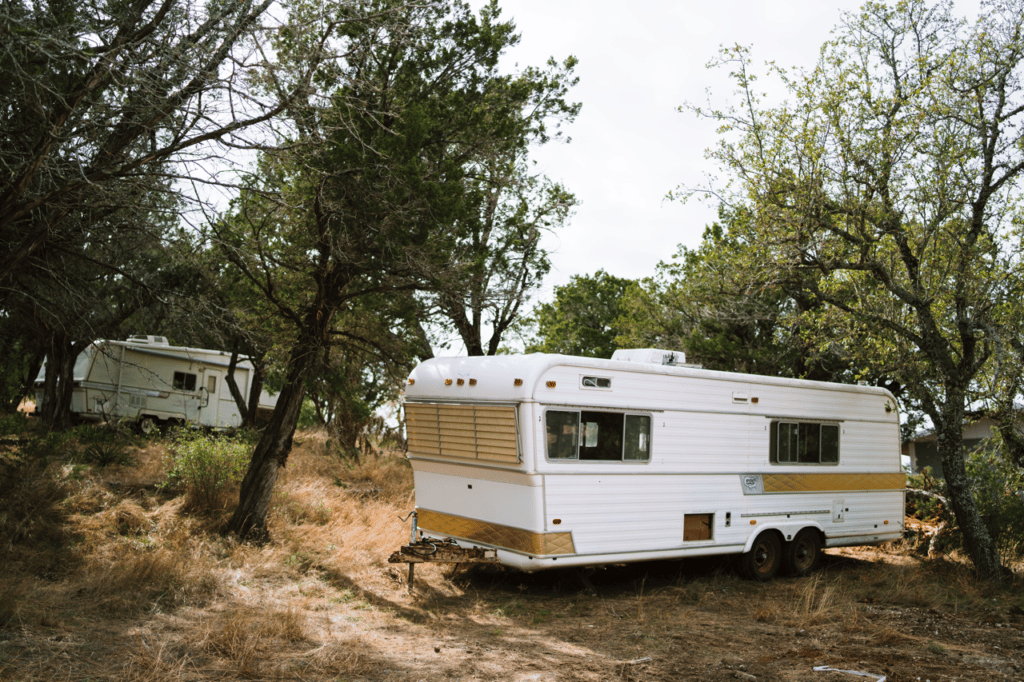
Dispersed camping
Dispersed camping means you’re heading off the beaten path into the wilderness. No developed camping areas or campgrounds exist, so you’re on your own.
Glamping
Glamping is a luxury camping experience where you can enjoy all the comforts of home while camping in style. From glamorous cabin tents to yurts and treehouses.
What is backpacking?
Backpacking is a type of camping where you carry all your supplies in a backpack. This allows you to hike to remote locations and camp overnight. Backpacking trips can last for a few days or even weeks.
Some backpacking types include:
- Traditional backpacking, where you carry all your gear in a large backpack, including a small tent, sleeping bag, and cooking tools.
- Ultralight backpacking, which is similar to traditional backpacking but requires that every item in your backpack is carefully chosen to minimize weight. This can include using lighter materials, multi-purpose items, and doing without some things altogether.
- Thru-hiking, a type of long-instance backpacking. Thru-hikers attempt to hike an entire trail from start to finish in one trip. This can take months, and many thru-hikers choose to hike well-known trails such as the Appalachian Trail or the Pacific Crest Trail.
What’s the difference between camping and backpacking?
As we’ve seen, backpacking is a way of camping. Suppose that car camping is the most usual way of camping; we can say the main difference between camping vs backpacking is how you get to your camping spot.
While backpacking, you carry everything – including your shelter – on your shoulders; in car camping, you might grab as many items as your vehicle fits.
Now, let’s take a look at how these two differ in other aspects, like comfort or skill level.
Camping vs backpacking: equipment
One of the major differences between camping and backpacking is the amount and type of gear you take. For both camping and backpacking, you’ll need a place where to sleep, a sleeping pad, and some campfire cooking equipment.
However, for backpacking, you’re restricted to what you can carry, so you’ll be looking for as lightweight options as possible. The types of tents that’ll be suitable to take on your shoulder will get very limited as you’ll be looking for something that breaks down into a very tiny package.
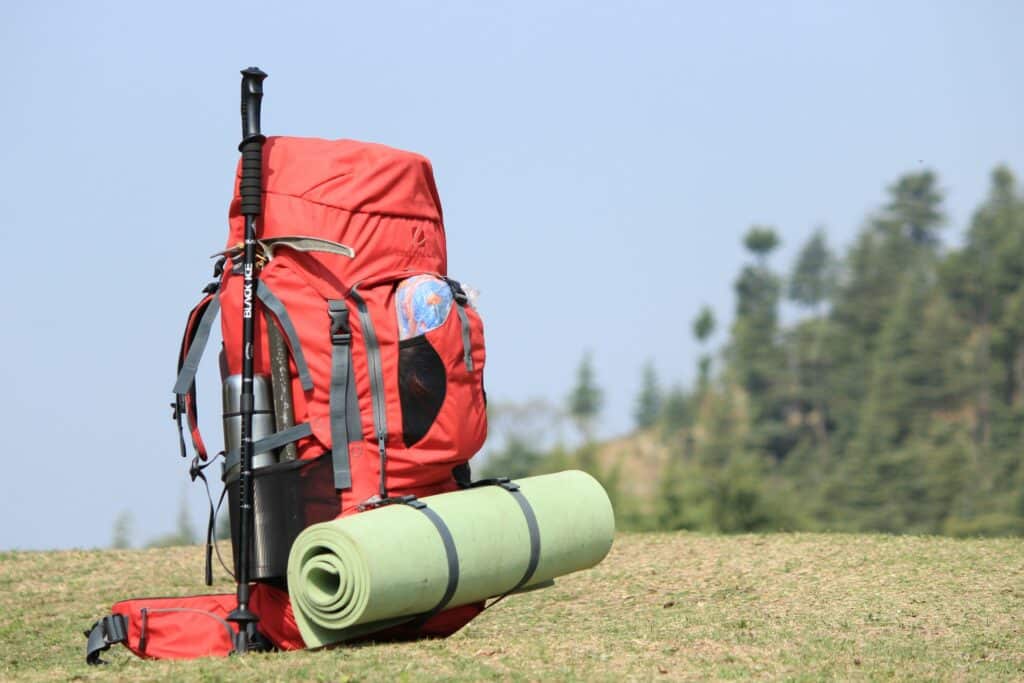
While backpacking gear might also be enough for your car camping trip, you’ll most likely take additional gear, like a camping shower, camping pillow, or any other items that add to your comfort.
Camping vs backpacking: skill level
Another difference between camping and backpacking is the skill level required. Camping can be pretty straightforward, especially if you’re car camping. Though backpacking is more challenging – you’ll need to carry all the weight on your shoulders and, of course, know how to survive with as minimal equipment as possible.
Backpacking also requires more planning and a greater understanding of the Leave No Trace principles. You also need to be able to navigate the trail and know what to do if you get lost or injured.
Whether you’re camping or backpacking, you must be well aware of the 5 C’s of Survival to pack up your survival kit and be ready for emergencies. In all cases, camping safety must be at the top of your head.
Camping vs backpacking: preparation
You’ll definitely have more work while preparing for backpacking.
Camping, though, will require more energy on its own, mainly if you haven’t organized your gear yet.
For backpacking, you’ll need to map your route and investigate the landscape carefully. You’ll want to bring everything you need while ensuring your pack weight is the lowest possible. While camping, it can be as simple as throwing your gear in the car.
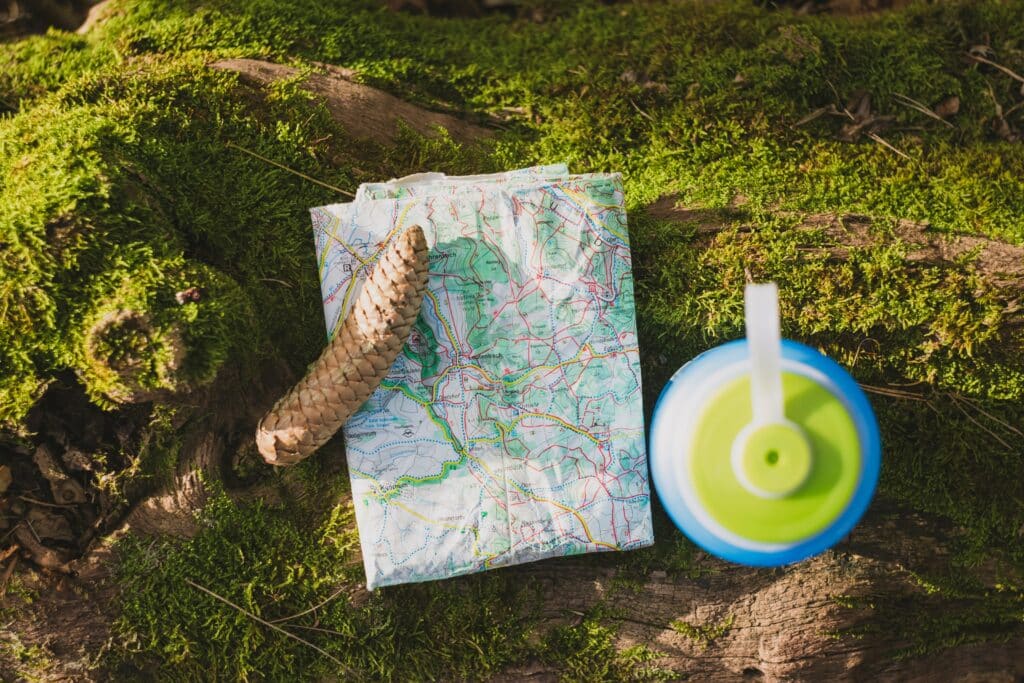
You’ll also need to thoughtfully prepare your food to make sure you save your backpack space (and weight) but get the proper amount of calories. You’ll want to bring a camping mess kit that’s as light as possible but still has everything you need to drink and eat with.
Camping will take time to prepare if you aren’t a seasoned camper yet. There are LOTS of things to remember, and forgetting them can steal the joy from your trip.
To make your packing for camping easier, we’ve compiled a camping checklist that you can use to wipe out the hassle.
Camping vs backpacking: comfort
Camping can be pretty comfortable, especially if you’re car camping and have brought along all of your creature comforts.
Backpacking, on the other hand, is often less cozy. You’re carrying all your gear on your back, and you may have to forgo some comforts to save weight.
However, many backpackers find that the sense of accomplishment and rewards that come with backpacking outweighs the discomfort.
Camping vs backpacking: effort
In terms of effort, camping is usually easier than backpacking. It’s easier to drive to the camping place and set everything up. While backpacking, you reach your final destination on foot with all the weight on the back.
Camping vs backpacking: accessibility
Backpacking offers more opportunities to explore remote and wilderness areas. When you’re car camping, you’re restricted to places vehicles can go.
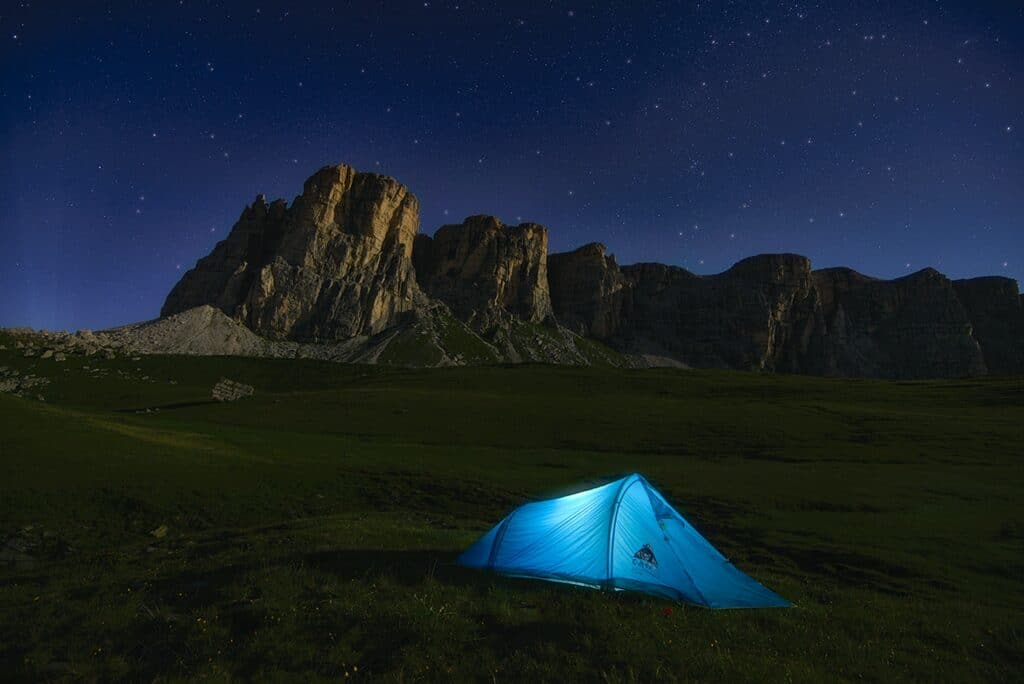
Backpacking opens up a world of possibilities in terms of where you can go and what you can see. It’s not uncommon for backpackers to hike for days or even weeks without seeing another soul.
Camping vs backpacking: cost
Camping is generally less expensive than backpacking since you don’t need to buy lightweight equipment. Actually, the more ultralight backpacking trip is, the more significant the price gap.
Ultralight gear seeks to fit all the quality into less weight, thus increasing the costs.
On the other hand, car camping allows you to enjoy the outdoors with medium-quality or budget equipment.
So, what’s right for me?
If you’re looking for a more relaxed camping experience with all the comforts of home, then camping is probably your best bet.
But if you’re up for an adventure and don’t mind carrying your gear on your back, then backpacking is the way to go.
Whichever you choose, make sure you’re prepared and have the proper equipment!